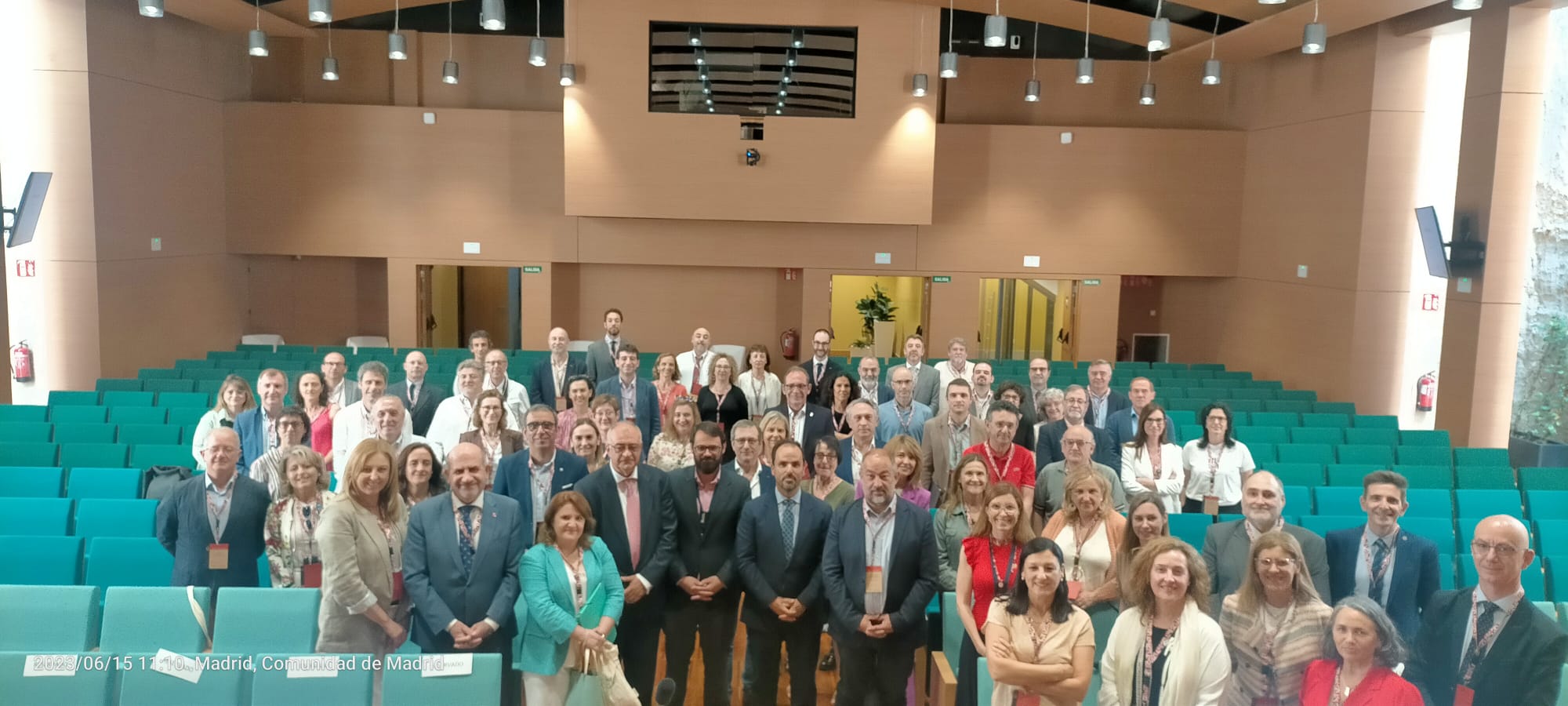Raul Garcia Hemonnet
The Rey Juan Carlos University has become this Thursday the epicenter of university research by hosting the full CRUE I + D + i.
The rector, Javier Ramos, who chaired the conference, recalled the “irreplaceable value of the University in local development, especially if we contribute through international research and transnational alliances in teaching. Our Universities are protagonists for the general interest in very diverse scenarios; as a focus for reflection, creation and research, as a great teaching space, as a source of opportunities and also as an emblem of the progress of our country”.
In addition, Ramos recalled that “when we talk about science, we are referring to a universal body of shared knowledge, which has a humanitarian ambition and is subject to permanent validation by the scientific community itself. We are talking about an open community, which advances as contact between all its members intensifies, and which owes gratitude to technological progress that minimizes the barriers that may exist between scientists. And that immediacy, accelerated by the possibility of transcending physical and operational limitations, is the right context to place even more emphasis on respecting the rules”.
Following these words, Ramos recalled the recent publication of a report on cases of inflated research curricula.
In this sense, he indicated that the URJC has adhered, together with the CRUE, to the COARA coalition, "launched from the European Commission to overcome the problems of the exclusively quantitative model regarding scientific publications", he explained, before concluding by acknowledging the work of the CRUE and its R+D+i sector in supporting university research.
Ramos was accompanied at the presidential table by the dean of the Faculty of Arts and Humanities, Miguel Ángel Esparza, who vindicated the value of these disciplines in today's society "if the humanities decline, it grows in its place, as a substitute, the mere thoughtless dogmatism. If art devalues its scope it is easily content with mere provocation. It is everyone's task, in fact, to ensure that humanistic knowledge does not decline, what Nebrija already called in Spanish, the arts of humanity that make us live, he said 'in this great company that we call the city': there was no citizenry without a humanistic culture and without aesthetic sense.
Esparza has stressed the need for the new generations of humanists to apply their knowledge in several different ways and collaborating with colleagues from many other disciplines, “cultivating the humanities from the university will create educated professionals. Culture is what remains when it seems that everything that was learned has been forgotten, said a famous essayist. Let's make sure that the arts of humanity do not stop being taught, that culture does not wither away, that the person does not wither away”, indicated the dean.
Along with Ramos and Esparza, the rector of the UCLM and president of the CRUE I+D+i Executive Committee, Julián Garde López-Brea, has also been present.
The 'highlight' of the day, from the operational and practical point of view, was the meeting of the vice-chancellors for R+D+i who attended the plenary session. Within this framework, different reports related to internationalization, knowledge transfer or European offices, among other aspects, have been presented.
In addition, the act has featured two presentations. On the one hand, one that dealt with the transfer of knowledge and its operation in the new regulatory framework, by the director of the Faculty Division of the National Evaluation and Accreditation Agency (ANECA), Susana Quicios Molina.
On the other hand, the representatives of Santander Universities, José María García de Los Ríos and Amaya Román, talked about the commitment to the investigation of the aforementioned bank.
Both papers were presented by the Vice-Rector for Research, Innovation and Transfer, Fernando García Muiña and the Deputy Vice-Rector of the same Vice-Rectorate, Lydia González Serrano.
The vice-rector García Muiña has indicated that the CRUE I+D+i Plenary Session "is a space for debate and reflection on the new challenges posed by the Law on Science, the LOSU and the evaluation models of research activity that are being promoted from the European Commission.
An opportunity for all the CRUE vice-rectorates for research and innovation to share experiences and analyze issues that affect research work in academia.




